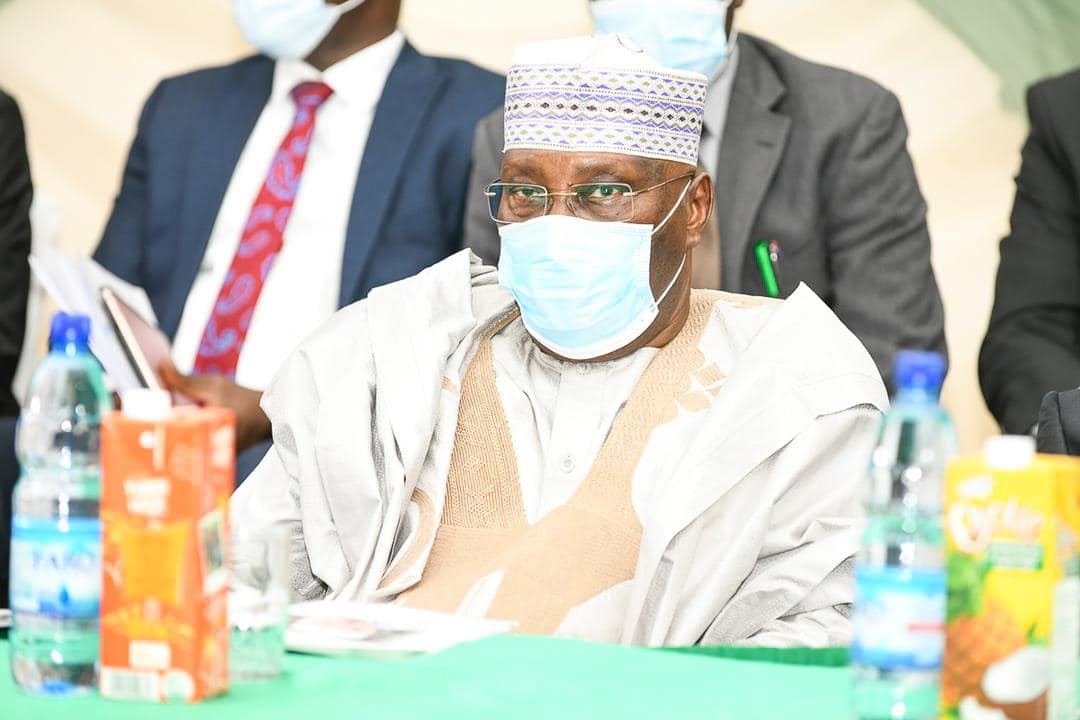Business
Drugs Inflow: MWUN Blames NPA Of Security Breach

The Maritime Workers’ Union of Nigeria (MWUN) has blamed the incessant importation of hard drugs into the country through the ports on removal of onboard security men from the port by the Nigerian Ports Authority (NPA).
The President General of MWUN, Comrade Adewale Adeyanju disclosed this in an interview with newsmen on Monday in Lagos.
Adeyanju, who said he commended the operatives of the Nigerian Drug Law Enforcement Agency (NDLEA) for its prompt action over the discovery of cocaine and heroin on board a vessel in Apapa recently, added that MWUN would not in any way support any illegality.
But according to him, if the onboard security men were on ground, they would have identified and intercepted such illicit drugs imported into the country.
He noted that the present crop of security operatives at the terminals were strange people that do not understand the terrain of the ports.
His words, “As a result of what is going onboard gang way men, If you look at all the faces now, we cannot confirm who are the onboard-gang way men.
“ If we have onboard-gangway, most of these things would be identified by the security men onboard the vessels, but as a result of the Nigerian Ports Authority flushing out tally clerk and onboard security men, we have been telling the whole world that onboard-gangway men are the international body recognised all over the world in line with the ILO on maritime.
“They should bring back the onboard security men who will identify visitors onboard the vessels. As it is now, we don’t know the people managing security onboard the vessels, they are illegal.
“The NIMASA, NPA and terminal operators should wake up and make sure that what belongs to the onboard-gang way men should be equally be given and bring them back.
“If there are security men onboard the vessels, there would not be transportation of hard drugs and narcotics at the ports.”
Adeyanju called on officials of NDLEA to add human face in doing their jobs, saying it is unlawful to keep suspects in custody for two or three months without trials.
“He commend the efforts of the NDLEA for promptness in their actions, adding that for “some time now, the leadership of the NDLEA has taken responsibility as the head of that agency, but while you are about doing that, you need to have human face in doing your jobs.
By: Nkpemenyie Mcdominic, Lagos
Business
NCDMB, Jake Riley Empower 250 Youths On Vocational Skills

Business
NUJ Partners RSIRS On New Tax Law Education

Transport
Nigeria Rates 7th For Visa Application To France —–Schengen Visa

-

 Politics5 days ago
Politics5 days agoPFN Rejects Call For INEC Chairman’s Removal Over Genocide Comments
-

 Rivers5 days ago
Rivers5 days agoFasthire, PHCCIMA, CIPM Host CareerFest 2026 In PH
-

 Sports5 days ago
Sports5 days agoEnekwechi wins Orlen Cup in season opener
-

 Politics5 days ago
Politics5 days agoHoodlums Disrupt LP-ADC Defection Event In Lagos
-

 Sports5 days ago
Sports5 days agoSimba open Nwabali talks
-

 Sports5 days ago
Sports5 days agoFalconets, Senegalese Lionesses arrive Ibadan for qualifier
-

 Politics5 days ago
Politics5 days agoRemoval From INEC’s Portal, Abure-Led LP Faction Mulls Legal Action
-

 Niger Delta5 days ago
Niger Delta5 days agoTinubu, Jonathan, Diri Pay Last Respect To Ewhrudjakpo

